Abstract:
The attacks, faults, and severe communication/system conditions in Mobile Crowd Sensing (MCS) make false data detection a critical problem. Observing the intrinsic low di...Show MoreMetadata
Abstract:
The attacks, faults, and severe communication/system conditions in Mobile Crowd Sensing (MCS) make false data detection a critical problem. Observing the intrinsic low dimensionality of general monitoring data and the sparsity of false data, false data detection can be performed based on the separation of normal data and anomalies. Although the existing separation algorithm based on Direct Robust Matrix Factorization (DRMF) is proven to be effective, requiring iteratively performing Singular Value Decomposition (SVD) for low-rank matrix approximation would result in a prohibitively high accumulated computation cost when the data matrix is large. In this work, we observe the quick false data location feature from our empirical study of DRMF, based on which we propose an intelligent Light weight Low Rank and False Matrix Separation algorithm (LightLRFMS) that can reuse the previous result of the matrix decomposition to deduce the one for the current iteration step. Depending on the type of data corruption, random or successive/mass, we design two versions of LightLRFMS. From a theoretical perspective, we validate that LightLRFMS only requires one round of SVD computation and thus has very low computation cost. We have done extensive experiments using a PM 2.5 air condition trace and a road traffic trace. Our results demonstrate that LightLRFMS can achieve very good false data detection performance with the same highest detection accuracy as DRMF but with up to 20 times faster speed thanks to its lower computation cost.
Published in: IEEE/ACM Transactions on Networking ( Volume: 28, Issue: 3, June 2020)
Funding Agency:
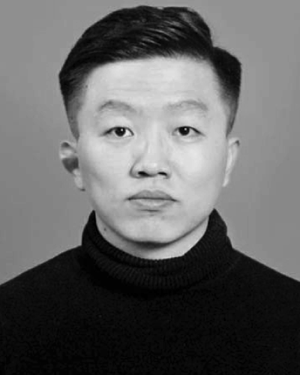
College of Computer Science and Electronics Engineering, Hunan University, Changsha, China
Xiaocan Li is currently pursuing the Ph.D. degree with Hunan University. His research interests include matrix/tensor factorization and anomaly detection.
Xiaocan Li is currently pursuing the Ph.D. degree with Hunan University. His research interests include matrix/tensor factorization and anomaly detection.View more

College of Computer Science and Electronics Engineering, Hunan University, Changsha, China
Cyberspace Security Research Center, Peng Cheng Laboratory, Shenzhen, China
Purple Mountain Laboratory, Nanjing, China
Kun Xie received the Ph.D. degree in computer application from Hunan University, Changsha, China, in 2007. She is currently a Professor with Hunan University, the Peng Cheng Laboratory, and the Purple Mountain Laboratory. She has published over 60 articles in major journals and conference proceedings, including journals such as the IEEE/ACM Transactions on Networking, the IEEE Transactions on Mobile Computing, the IEEE Tr...Show More
Kun Xie received the Ph.D. degree in computer application from Hunan University, Changsha, China, in 2007. She is currently a Professor with Hunan University, the Peng Cheng Laboratory, and the Purple Mountain Laboratory. She has published over 60 articles in major journals and conference proceedings, including journals such as the IEEE/ACM Transactions on Networking, the IEEE Transactions on Mobile Computing, the IEEE Tr...View more

Department of Electrical and Computer Engineering, The State University of New~York at Stony Brook, Stony Brook, USA
Xin Wang (Member, IEEE) received the Ph.D. degree in electrical and computer engineering from Columbia University, USA. She is currently an Associate Professor with the Department of Electrical and Computer Engineering, The State University of New York at Stony Brook, USA. Her research interests include algorithm and protocol design in wireless networks and communications, mobile and distributed computing, and networked s...Show More
Xin Wang (Member, IEEE) received the Ph.D. degree in electrical and computer engineering from Columbia University, USA. She is currently an Associate Professor with the Department of Electrical and Computer Engineering, The State University of New York at Stony Brook, USA. Her research interests include algorithm and protocol design in wireless networks and communications, mobile and distributed computing, and networked s...View more

Computer Network Information Center, Chinese Academy of Sciences, Beijing, China
School of Computer Science and Technology, University of Chinese Academy of Sciences, Beijing, China
Gaogang Xie received the B.S. degree in physics and the M.S. and Ph.D. degrees in computer science from Hunan University in 1996, 1999, and 2002, respectively. He is currently a Professor with the Computer Network Information Center (CNIC), Chinese Academy of Sciences (CAS), and the University of Chinese Academy of Sciences. He is also the Vice President of CNIC. His research interests include Internet architecture, packe...Show More
Gaogang Xie received the B.S. degree in physics and the M.S. and Ph.D. degrees in computer science from Hunan University in 1996, 1999, and 2002, respectively. He is currently a Professor with the Computer Network Information Center (CNIC), Chinese Academy of Sciences (CAS), and the University of Chinese Academy of Sciences. He is also the Vice President of CNIC. His research interests include Internet architecture, packe...View more
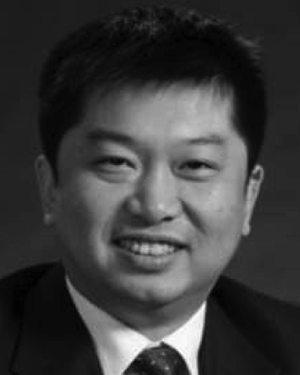
Key Laboratory of Networking and Switching Technology, Beijing University of Posts and Telecommunications, Beijing, China
Dongliang Xie received the Ph.D. degree from the Beijing Institute of Technology, China, in 2002. He is currently a Full Professor and the Director of the State Key Laboratory of Networking and Switching Technology, Broadband Network Research Center, Beijing University of Posts and Telecommunications (BUPT), China. His research interests have expanded from wireless sensor networks to the future information centric network...Show More
Dongliang Xie received the Ph.D. degree from the Beijing Institute of Technology, China, in 2002. He is currently a Full Professor and the Director of the State Key Laboratory of Networking and Switching Technology, Broadband Network Research Center, Beijing University of Posts and Telecommunications (BUPT), China. His research interests have expanded from wireless sensor networks to the future information centric network...View more
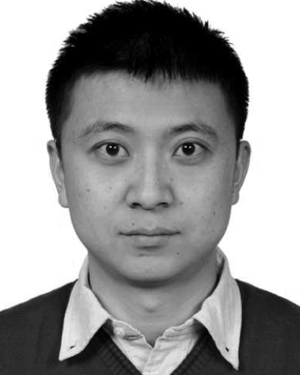
Chinese Academy of Sciences, Institute of Computing Technology, Beijing, China
Taobao.com, Beijing, China
Zhenyu Li (Member, IEEE) received the Ph.D. degree in 2009. He is currently a Full Professor with the Institute of Computing Technology (ICT), Chinese Academy of Sciences (CAS), and Taobao.com. His research interests include Internet architecture and Internet measurement.
Zhenyu Li (Member, IEEE) received the Ph.D. degree in 2009. He is currently a Full Professor with the Institute of Computing Technology (ICT), Chinese Academy of Sciences (CAS), and Taobao.com. His research interests include Internet architecture and Internet measurement.View more
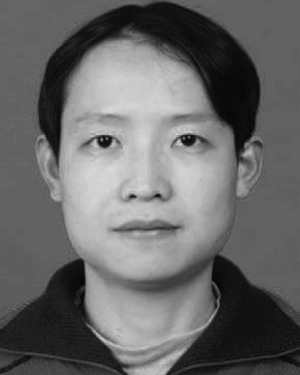
Computer Network Information Center, Chinese Academy of Sciences, Beijing, China
Jigang Wen received the Ph.D. degree in computer application from Hunan University, China, in 2011. He was a Research Assistant with the Department of Computing, The Hong Kong Polytechnic University, from 2008 to 2010. He is currently with the Computer Network Information Center (CNIC), Chinese Academy of Sciences. His research interests include wireless networks and mobile computing, and high-speed network measurement an...Show More
Jigang Wen received the Ph.D. degree in computer application from Hunan University, China, in 2011. He was a Research Assistant with the Department of Computing, The Hong Kong Polytechnic University, from 2008 to 2010. He is currently with the Computer Network Information Center (CNIC), Chinese Academy of Sciences. His research interests include wireless networks and mobile computing, and high-speed network measurement an...View more
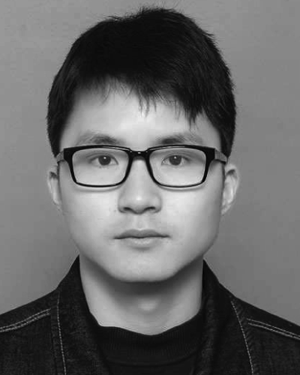
Purple Mountain Laboratory, Nanjing, China
Chinese Academy of Sciences, Institute of Computing Technology, Beijing, China
Zulong Diao received the Ph.D. degree in software engineering from Hunan University, Changsha, China, in 2019. He is currently working as a Research Associate with the Institute of Computing Technology, Chinese Academy of Sciences, and the Purple Mountain Laboratory. His research interests include machine learning, edge computing, and abnormal detection.
Zulong Diao received the Ph.D. degree in software engineering from Hunan University, Changsha, China, in 2019. He is currently working as a Research Associate with the Institute of Computing Technology, Chinese Academy of Sciences, and the Purple Mountain Laboratory. His research interests include machine learning, edge computing, and abnormal detection.View more
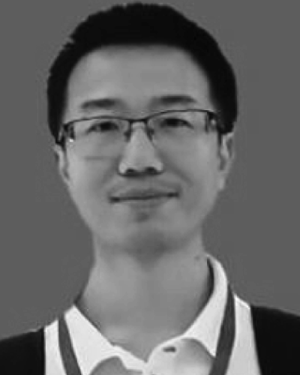
College of Computer Science and Technology, Huaqiao University, Quanzhou, China
Tian Wang received the B.Sc. and M.Sc. degrees in computer science from Central South University in 2004 and 2007, respectively, and the Ph.D. degree from the City University of Hong Kong in 2011. He is currently a Professor with the College of Computer Science and Technology, Huaqiao University, China. His research interests include the Internet of Things and edge computing.
Tian Wang received the B.Sc. and M.Sc. degrees in computer science from Central South University in 2004 and 2007, respectively, and the Ph.D. degree from the City University of Hong Kong in 2011. He is currently a Professor with the College of Computer Science and Technology, Huaqiao University, China. His research interests include the Internet of Things and edge computing.View more

College of Computer Science and Electronics Engineering, Hunan University, Changsha, China
Xiaocan Li is currently pursuing the Ph.D. degree with Hunan University. His research interests include matrix/tensor factorization and anomaly detection.
Xiaocan Li is currently pursuing the Ph.D. degree with Hunan University. His research interests include matrix/tensor factorization and anomaly detection.View more

College of Computer Science and Electronics Engineering, Hunan University, Changsha, China
Cyberspace Security Research Center, Peng Cheng Laboratory, Shenzhen, China
Purple Mountain Laboratory, Nanjing, China
Kun Xie received the Ph.D. degree in computer application from Hunan University, Changsha, China, in 2007. She is currently a Professor with Hunan University, the Peng Cheng Laboratory, and the Purple Mountain Laboratory. She has published over 60 articles in major journals and conference proceedings, including journals such as the IEEE/ACM Transactions on Networking, the IEEE Transactions on Mobile Computing, the IEEE Transactions on Computers, the IEEE Transactions on Wireless Communications, and the IEEE Transactions on Services Computing, and conferences, including SIGMOD, INFOCOM, ICDCS, SECON, DSN, and IWQoS. Her research interests include network measurement, network security, big data, and AI.
Kun Xie received the Ph.D. degree in computer application from Hunan University, Changsha, China, in 2007. She is currently a Professor with Hunan University, the Peng Cheng Laboratory, and the Purple Mountain Laboratory. She has published over 60 articles in major journals and conference proceedings, including journals such as the IEEE/ACM Transactions on Networking, the IEEE Transactions on Mobile Computing, the IEEE Transactions on Computers, the IEEE Transactions on Wireless Communications, and the IEEE Transactions on Services Computing, and conferences, including SIGMOD, INFOCOM, ICDCS, SECON, DSN, and IWQoS. Her research interests include network measurement, network security, big data, and AI.View more

Department of Electrical and Computer Engineering, The State University of New~York at Stony Brook, Stony Brook, USA
Xin Wang (Member, IEEE) received the Ph.D. degree in electrical and computer engineering from Columbia University, USA. She is currently an Associate Professor with the Department of Electrical and Computer Engineering, The State University of New York at Stony Brook, USA. Her research interests include algorithm and protocol design in wireless networks and communications, mobile and distributed computing, and networked sensing and detection. She was a member of the ACM in 2004. She received the NSF Career Award in 2005 and the ONR Challenge Award in 2010.
Xin Wang (Member, IEEE) received the Ph.D. degree in electrical and computer engineering from Columbia University, USA. She is currently an Associate Professor with the Department of Electrical and Computer Engineering, The State University of New York at Stony Brook, USA. Her research interests include algorithm and protocol design in wireless networks and communications, mobile and distributed computing, and networked sensing and detection. She was a member of the ACM in 2004. She received the NSF Career Award in 2005 and the ONR Challenge Award in 2010.View more

Computer Network Information Center, Chinese Academy of Sciences, Beijing, China
School of Computer Science and Technology, University of Chinese Academy of Sciences, Beijing, China
Gaogang Xie received the B.S. degree in physics and the M.S. and Ph.D. degrees in computer science from Hunan University in 1996, 1999, and 2002, respectively. He is currently a Professor with the Computer Network Information Center (CNIC), Chinese Academy of Sciences (CAS), and the University of Chinese Academy of Sciences. He is also the Vice President of CNIC. His research interests include Internet architecture, packet processing and forwarding, and Internet measurement.
Gaogang Xie received the B.S. degree in physics and the M.S. and Ph.D. degrees in computer science from Hunan University in 1996, 1999, and 2002, respectively. He is currently a Professor with the Computer Network Information Center (CNIC), Chinese Academy of Sciences (CAS), and the University of Chinese Academy of Sciences. He is also the Vice President of CNIC. His research interests include Internet architecture, packet processing and forwarding, and Internet measurement.View more

Key Laboratory of Networking and Switching Technology, Beijing University of Posts and Telecommunications, Beijing, China
Dongliang Xie received the Ph.D. degree from the Beijing Institute of Technology, China, in 2002. He is currently a Full Professor and the Director of the State Key Laboratory of Networking and Switching Technology, Broadband Network Research Center, Beijing University of Posts and Telecommunications (BUPT), China. His research interests have expanded from wireless sensor networks to the future information centric networks, mobile social networks, and mobile cloud computing.
Dongliang Xie received the Ph.D. degree from the Beijing Institute of Technology, China, in 2002. He is currently a Full Professor and the Director of the State Key Laboratory of Networking and Switching Technology, Broadband Network Research Center, Beijing University of Posts and Telecommunications (BUPT), China. His research interests have expanded from wireless sensor networks to the future information centric networks, mobile social networks, and mobile cloud computing.View more

Chinese Academy of Sciences, Institute of Computing Technology, Beijing, China
Taobao.com, Beijing, China
Zhenyu Li (Member, IEEE) received the Ph.D. degree in 2009. He is currently a Full Professor with the Institute of Computing Technology (ICT), Chinese Academy of Sciences (CAS), and Taobao.com. His research interests include Internet architecture and Internet measurement.
Zhenyu Li (Member, IEEE) received the Ph.D. degree in 2009. He is currently a Full Professor with the Institute of Computing Technology (ICT), Chinese Academy of Sciences (CAS), and Taobao.com. His research interests include Internet architecture and Internet measurement.View more

Computer Network Information Center, Chinese Academy of Sciences, Beijing, China
Jigang Wen received the Ph.D. degree in computer application from Hunan University, China, in 2011. He was a Research Assistant with the Department of Computing, The Hong Kong Polytechnic University, from 2008 to 2010. He is currently with the Computer Network Information Center (CNIC), Chinese Academy of Sciences. His research interests include wireless networks and mobile computing, and high-speed network measurement and management.
Jigang Wen received the Ph.D. degree in computer application from Hunan University, China, in 2011. He was a Research Assistant with the Department of Computing, The Hong Kong Polytechnic University, from 2008 to 2010. He is currently with the Computer Network Information Center (CNIC), Chinese Academy of Sciences. His research interests include wireless networks and mobile computing, and high-speed network measurement and management.View more

Purple Mountain Laboratory, Nanjing, China
Chinese Academy of Sciences, Institute of Computing Technology, Beijing, China
Zulong Diao received the Ph.D. degree in software engineering from Hunan University, Changsha, China, in 2019. He is currently working as a Research Associate with the Institute of Computing Technology, Chinese Academy of Sciences, and the Purple Mountain Laboratory. His research interests include machine learning, edge computing, and abnormal detection.
Zulong Diao received the Ph.D. degree in software engineering from Hunan University, Changsha, China, in 2019. He is currently working as a Research Associate with the Institute of Computing Technology, Chinese Academy of Sciences, and the Purple Mountain Laboratory. His research interests include machine learning, edge computing, and abnormal detection.View more

College of Computer Science and Technology, Huaqiao University, Quanzhou, China
Tian Wang received the B.Sc. and M.Sc. degrees in computer science from Central South University in 2004 and 2007, respectively, and the Ph.D. degree from the City University of Hong Kong in 2011. He is currently a Professor with the College of Computer Science and Technology, Huaqiao University, China. His research interests include the Internet of Things and edge computing.
Tian Wang received the B.Sc. and M.Sc. degrees in computer science from Central South University in 2004 and 2007, respectively, and the Ph.D. degree from the City University of Hong Kong in 2011. He is currently a Professor with the College of Computer Science and Technology, Huaqiao University, China. His research interests include the Internet of Things and edge computing.View more


